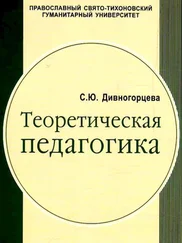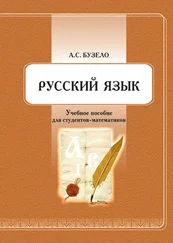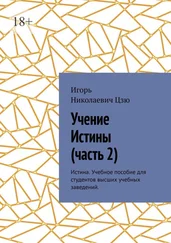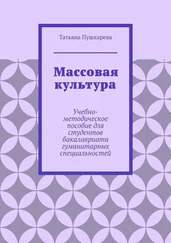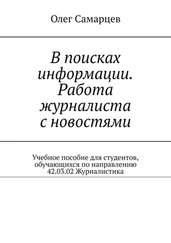В-седьмых, ордерная форма коносамента позволяет переуступать имущественные права на груз с помощью непрерывной последовательности переуступочных надписей и подписей. Это дает возможность не только переуступать право распоряжения грузом, но и в случае договоренности сторон договора купли-продажи, переуступать право собственности на товар.
И, наконец, в-восьмых, мультимодальный коносамент является простым документарным инструментом оформления сложных схем международной доставки грузов, поставки товаров, международных расчётов и изменения имущественных прав.
Всё вышеизложенное свидетельствует о том, что мультимодальные коносаменты сохранили все свойства и функции коносамента морского. И, потому являются коносаментами. Мультимодальный коносамент выполняет все три функции коносамента: является документом, подтверждающим заключение договора мультимодальной перевозки груза; является распиской мультимодального перевозчика в приеме груза в свое ведение; является товарораспорядительным документом. Мультимодальные коносаменты, как и морские коносаменты, могут быть именными, ордерными и на предъявителя. При этом мультимодальный коносамент является ценной бумагой, признается всеми институтами международного сообщества и его национальными субъектами.
Основной проблемой более широкого распространения мультимодальных коносаментов остается отсутствие императивных норм (международных конвенций), прямо регулирующий и регламентирующих правовой статус этого важнейшего в международном коммерческом обороте документа.
Часть II. Bills of Lading
Unit 1. General Provisions
A. Read the English texts and translate them.
1.1 Applicability
1.1.1 Notwithstanding the heading “Combined Transport”, the provisions set out and referred to in this Bill of Lading shall also apply, if the transport as described in this Bill of Lading is performed by one mode of transport only.
1.1.2 The provisions of this Contract shall apply irrespective of whether there is a unimodal or a Multimodal Transport Contract involving one or several modes of transport.
1.2 Definitions
1.2.1 “Carrier” means the party on whose behalf this Bill of Lading has been signed.
“Merchant” includes the Shipper, the Receiver, the Consignor, the Consignee, the holder of this Bill of Lading and the owner of the goods and any person entitled to possession of the cargo.
1.2.2 “Multimodal Transport Contract” means a single Contract for the carriage of Goods by at least two different modes of transport.
“Multimodal Transport Bill of Lading” (MT Bill of Lading) means this document evidencing a Multimodal Transport Contract and which can be replaced by electronic data interchange messages insofar as permitted by applicable law and is issued in a negotiable form.
“Multimodal Transport Operators” (MTO) means the person named on the face hereof who concludes a Multimodal Transport Contract and assumes responsibility for the performance thereof as a Carrier.
“Carrier” means the person who actually performs or undertakes to perform the carriage, or part thereof, whether he is identical with the Multimodal Transport Operator or not.
“Consignor” means the person who concludes the Multimodal Transport Contract with the Multimodal Transport Operator.
“Consignee” means the person entitled to receive the Goods from the Multimodal Transport Operator.
“Taken in charge” means that the Goods have been handed over to and accepted for carriage by the MTO.
“Delivery” means
(i) the handing over of the Goods to the Consignee; or
(ii) the placing of the Goods at the disposal of the Consignee in accordance with the Multimodal Transport Contract or with the law or usage of the particular trade applicable at the place of delivery; or
(iii) the handing over of the Goods to an authority or other third party to whom pursuant to the law or regulations applicable at the place of delivery, the Goods must be handed over.
“Special Drawing Rights” (SDR) means the unit of account as defined by the International Monetary Fund.
“Goods” means any property including live animals as well as containers, pallets or similar articles of transport or packaging not supplied by the MTO, irrespective of whether such property is to be or is carried on or under deck.
1.3 Carrier’s Tariff
The terms of the Carrier’s applicable Tariff at the date of shipment are incorporated herein. Copies of the relevant provisions of the applicable Tariff are available from the Carrier upon request. In the case of inconsistency between this Bill of Lading and the applicable Tariff, this Bill of Lading shall prevail.
1.4 Time bar
1.4.1 All liability whatsoever of the Carrier shall cease unless suit is brought within 9 months after delivery of the goods or the date when the goods should have been delivered.
1.4.2 The MTO shall, unless otherwise expressly agreed, be discharged of all liability under this MT Bill of Lading unless suit is brought within nine months after:
(i) the Delivery of Goods; or
(ii) the date when the Goods should have been delivered; or
(iii) the date when, in accordance with sub-clause 10 (e) failure to deliver the Goods would give the Consignee the right to treat the Goods as lost.
1.5 Law and jurisdiction
Disputes arising out of or in connection with this Bill of Lading shall be exclusively determined by the courts and in accordance with the law of the place where the Carrier has his principal place of business, as stated on Page 1, except as provided elsewhere herein.
B. 1 Active word-list


B.2 Remember these useful words and phrases:

C. Exercises
1. Translate these phrases into English using the texts if necessary.
1. Сторона, от чьего имени был подписан данный Коносамент.
Читать дальше
Конец ознакомительного отрывка
Купить книгу
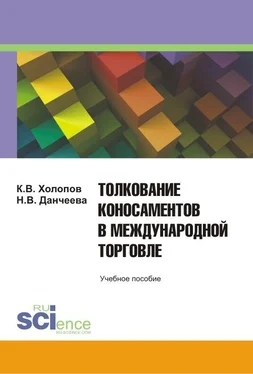



![Евгений Аринин - Религиоведение [учебное пособие для студентов ВУЗов]](/books/106186/evgenij-arinin-religiovedenie-uchebnoe-posobie-dlya-thumb.webp)
